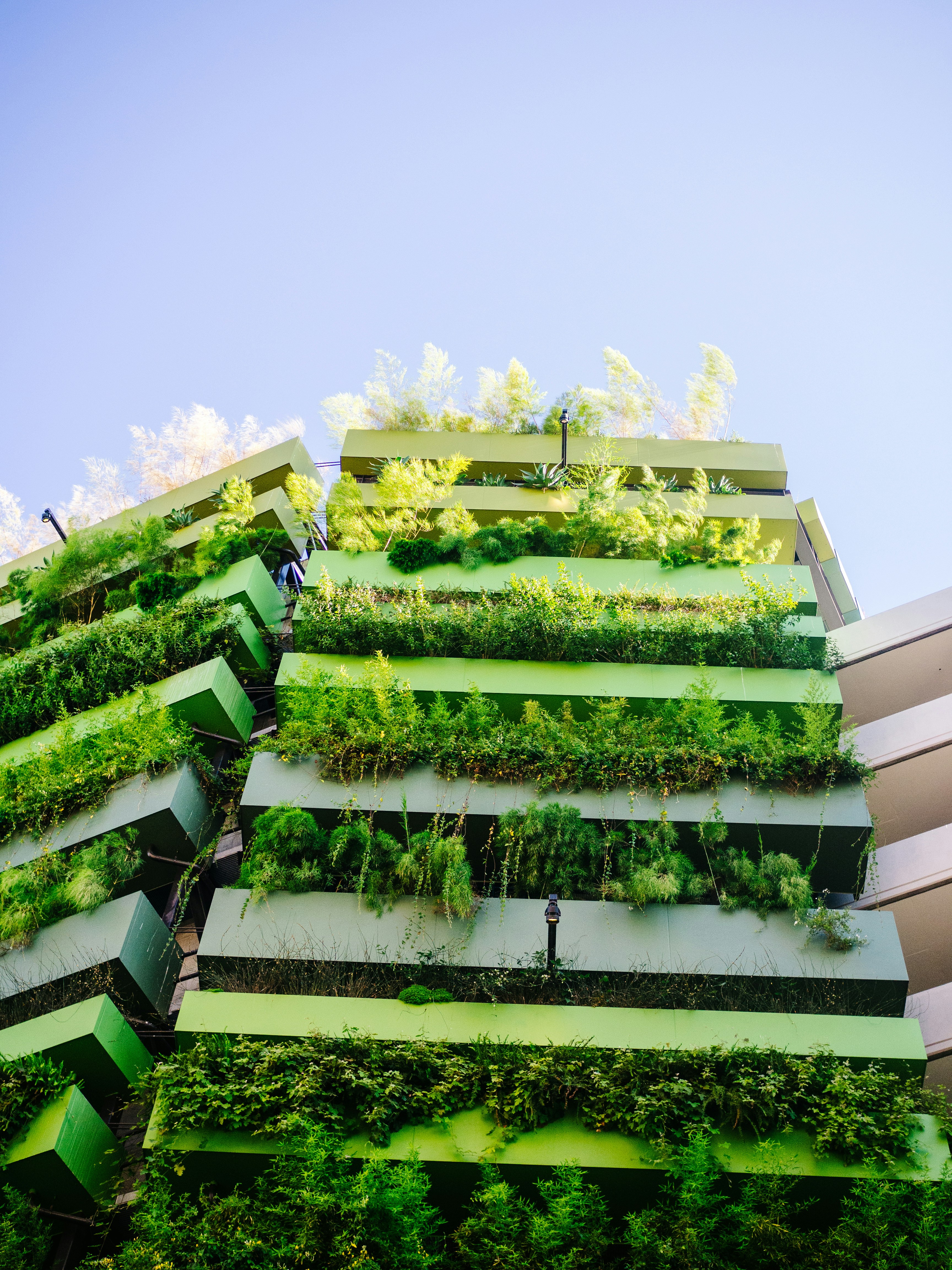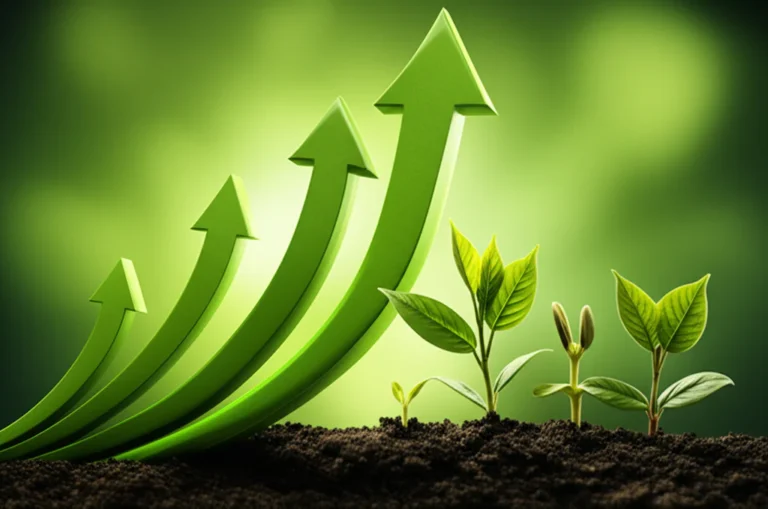Support our educational content for free when you purchase through links on our site. Learn more
60+ Eco Friendly Business Examples to Inspire Your Green Venture (2025) 🌿
Ready to turn your passion for the planet into a thriving business? Whether you’re dreaming of launching a zero-waste shop, pioneering sustainable fashion, or innovating in renewable energy, this ultimate guide to eco friendly business examples has got you covered. We’ve scoured the green economy to bring you over 60 inspiring ideas that not only protect the planet but also boost profits and build loyal communities.
Did you know that businesses adopting sustainable practices are growing 5 times faster than their traditional counterparts? 🌍 That’s right—going green isn’t just good for the Earth; it’s a smart business move. Later in this article, we’ll reveal how top brands like Patagonia and Tesla are redefining success, share insider tips on avoiding greenwashing, and walk you through step-by-step strategies to launch your own eco-conscious venture. Curious about which green business models actually work? Keep reading—we’ll unpack those too!
Key Takeaways
- Eco-friendly businesses combine profitability with planet-positive practices by using sustainable materials, renewable energy, and waste reduction.
- The circular economy, sharing economy, and product-as-a-service models are powerful frameworks driving innovation in green business.
- Real-world examples from industries like renewable energy, sustainable agriculture, ethical fashion, and green tech showcase how diverse and dynamic eco businesses can be.
- Starting your own green business involves careful niche selection, authentic marketing, and transparent impact measurement to avoid pitfalls like greenwashing.
- Certifications like B Corp and LEED can boost credibility and open doors to new markets and funding.
- Our Gone Greenish™ team’s insights and recommended resources will help you confidently navigate the green business landscape.
Ready to explore eco-friendly products and brands that lead the way?
👉 Shop sustainable brands on:
Table of Contents
- ⚡️ Quick Tips and Facts: Your Green Business Cheat Sheet
- 🌿 The Green Wave: A Brief History of Sustainable Enterprise
- Defining “Green”: What Exactly is an Eco-Friendly Business?
- Why Go Green? The Irresistible Benefits of Sustainable Business Practices
- Unpacking the Green Industry: Sectors Thriving in Sustainability
- Renewable Energy & Energy Efficiency Solutions
- Sustainable Agriculture & Organic Food Systems
- Waste Management & Circular Economy Innovations
- Eco-Friendly Products & Services for Conscious Consumers
- Green Building & Sustainable Construction
- Ethical Fashion & Sustainable Textiles
- Eco-Tourism & Responsible Travel Experiences
- Water Conservation & Management Technologies
- Green Technology & Eco-Innovation
- Crafting Your Eco-Conscious Blueprint: Essential Green Business Models
- The Circular Economy Model: Reduce, Reuse, Recycle, Regenerate
- Sharing Economy Model: Collaborative Consumption for a Lighter Footprint
- Product-as-a-Service (PaaS) Model: Ownership Without Waste
- B Corp Certification & Social Enterprise: Business as a Force for Good
- Zero-Waste Business Practices: Minimizing Your Environmental Impact
- Ethical Sourcing & Supply Chain Transparency: Knowing Your Roots
- Our Top Picks: Inspiring Eco-Friendly Business Examples (Dozens of Ideas to Spark Your Imagination!)
- From Idea to Impact: How to Start Your Own Green Business Journey
- Identifying Your Niche & Passion: What Problem Can You Solve Sustainably?
- Market Research & Feasibility Studies: Is There a Demand for Your Green Solution?
- Developing a Sustainable Business Plan: Your Roadmap to Success
- Funding Your Green Venture: Grants, Loans, & Impact Investors
- Building a Green Supply Chain: From Raw Materials to Your Customer’s Door
- Marketing Your Eco-Friendly Brand Authentically: Avoiding Greenwashing
- Measuring & Communicating Your Impact: Show, Don’t Just Tell
- Beyond the Basics: Advanced Strategies for Green Business Success
- Common Pitfalls to Avoid on Your Green Journey ❌
- Our Gone Greenish™ Team’s Personal Eco-Business Insights
- Conclusion: The Future is Green – Join the Movement!
- Recommended Links: Dive Deeper into Sustainable Business
- FAQ: Your Green Business Questions Answered
- Reference Links: Our Sources for Sustainable Wisdom
Quick Tips and Facts: Your Green Business Cheat Sheet
As health nuts at Gone Greenish™, specializing in healthy you, healthy planet 🌎, we’re excited to share our expertise on eco-friendly business examples. To get started, check out our article on Which Brand Is Most Sustainable? 🌟 Top 50 Eco Leaders in 2025 for insights into the most sustainable brands.
Here are some quick tips and facts to consider:
- Sustainable materials: Use recycled, renewable, and biodegradable materials in your products and packaging.
- Renewable energy: Power your operations with clean energy sources like solar or wind power.
- Waste reduction: Implement recycling programs, composting, and minimal packaging to reduce waste.
- Eco-friendly transportation: Consider using electric or hybrid vehicles for transportation.
- Green certifications: Look into certifications like LEED or Energy Star to ensure your business meets high environmental standards.
For more information on reducing your carbon footprint, visit our category on Carbon Footprint Reduction.
The Green Wave: A Brief History of Sustainable Enterprise

The concept of eco-friendly businesses has been around for decades, but it’s gained significant momentum in recent years. As consumers become more environmentally conscious, companies are responding by adopting sustainable practices and reducing their environmental impact.
According to the United Nations, sustainable development is “meeting the needs of the present without compromising the ability of future generations to meet their own needs.” This concept is at the heart of eco-friendly businesses, which prioritize environmental sustainability alongside profitability.
For more information on climate change and its impact on businesses, visit our category on Climate Change.
Defining “Green”: What Exactly is an Eco-Friendly Business?
An eco-friendly business, also known as a green business, is a company that prioritizes environmental sustainability and reduces its negative impact on the environment. This can include using sustainable materials, reducing waste and emissions, and promoting eco-friendly practices throughout the supply chain.
Beyond the Buzzwords: Understanding Green Business Models
A green business model is a framework that prioritizes environmental sustainability alongside profitability. This can include circular economy principles, where products are designed to be recycled, reused, or biodegradable.
For example, companies like Patagonia and REI have implemented circular economy models, where customers can return used products for recycling or reuse.
The Triple Bottom Line: People, Planet, Profit 🌍
The triple bottom line is a framework that considers the social, environmental, and economic impact of a business. This approach recognizes that a company’s success is not just measured by its profits, but also by its impact on people and the planet.
For more information on eco-conscious brands, visit our category on Eco-Conscious Brands.
Why Go Green? The Irresistible Benefits of Sustainable Business Practices
Going green can have numerous benefits for businesses, including:
- Cost savings: Reducing energy consumption and waste can lead to significant cost savings.
- Increased brand reputation: Consumers are more likely to trust and support companies that prioritize environmental sustainability.
- Improved employee morale: Employees are more likely to be engaged and motivated when working for a company that shares their values.
- Access to new markets: Eco-friendly products and services can appeal to a growing market of environmentally conscious consumers.
Environmental Impact: Healing Our Planet 🌎
One of the most significant benefits of going green is the positive impact on the environment. By reducing waste and emissions, businesses can help mitigate climate change and promote sustainable development.
For example, companies like Tesla and Vestas are leading the way in renewable energy solutions, reducing our reliance on fossil fuels and promoting a cleaner, healthier environment.
Economic Advantages: Boosting Your Bottom Line 💰
Going green can also have economic advantages, including cost savings and increased revenue. By reducing energy consumption and waste, businesses can lower their operational costs and improve their bottom line.
For example, companies like Walmart and Coca-Cola have implemented sustainable practices that have resulted in significant cost savings and improved profitability.
Social Responsibility: Building Brand Loyalty & Community Trust
Going green can also promote social responsibility and build brand loyalty and community trust. By prioritizing environmental sustainability, businesses can demonstrate their commitment to the well-being of people and the planet.
For example, companies like Ben & Jerry’s and The Body Shop have built their brands around social and environmental responsibility, promoting a positive image and loyal customer base.
Regulatory Compliance & Future-Proofing Your Business
Finally, going green can help businesses comply with regulatory requirements and future-proof their operations. By prioritizing environmental sustainability, companies can reduce their risk of non-compliance and stay ahead of the curve in terms of sustainable development.
For more information on green businesses, visit our category on Green Businesses.
Unpacking the Green Industry: Sectors Thriving in Sustainability
The green industry encompasses a wide range of sectors, including:
- Renewable energy: Companies like SunPower and Vestas are leading the way in solar and wind energy solutions.
- Sustainable agriculture: Companies like Organic Valley and Stonyfield Farm are promoting organic and regenerative farming practices.
- Eco-friendly products: Companies like Seventh Generation and Ecover are offering sustainable cleaning products and household goods.
- Green building: Companies like LEED and Green Globes are promoting sustainable building practices and energy-efficient design.
Renewable Energy & Energy Efficiency Solutions
Renewable energy solutions, such as solar and wind power, are becoming increasingly cost-competitive with fossil fuels. Companies like Tesla and Vestas are leading the way in renewable energy solutions.
Sustainable Agriculture & Organic Food Systems
Sustainable agriculture and organic food systems are promoting regenerative farming practices and reducing synthetic fertilizers and pesticides. Companies like Organic Valley and Stonyfield Farm are leading the way in organic and regenerative farming.
Waste Management & Circular Economy Innovations
Waste management and circular economy innovations are reducing waste and emissions and promoting sustainable consumption. Companies like TerraCycle and Loop are leading the way in circular economy solutions.
Eco-Friendly Products & Services for Conscious Consumers
Eco-friendly products and services are promoting sustainable consumption and reducing waste. Companies like Seventh Generation and Ecover are offering sustainable cleaning products and household goods.
Green Building & Sustainable Construction
Green building and sustainable construction are promoting energy-efficient design and reducing waste. Companies like LEED and Green Globes are leading the way in sustainable building practices.
Ethical Fashion & Sustainable Textiles
Ethical fashion and sustainable textiles are promoting fair labor practices and reducing waste. Companies like Patagonia and Reformation are leading the way in sustainable fashion.
Eco-Tourism & Responsible Travel Experiences
Eco-tourism and responsible travel experiences are promoting sustainable tourism and reducing waste. Companies like Intrepid Travel and National Geographic Expeditions are leading the way in responsible travel.
Water Conservation & Management Technologies
Water conservation and management technologies are promoting water efficiency and reducing waste. Companies like WaterSense and Low Flow are leading the way in water conservation solutions.
Green Technology & Eco-Innovation
Green technology and eco-innovation are promoting sustainable development and reducing waste. Companies like Tesla and Google are leading the way in green technology and eco-innovation.
Crafting Your Eco-Conscious Blueprint: Essential Green Business Models
Green business models are frameworks that prioritize environmental sustainability alongside profitability. Some essential green business models include:
- The Circular Economy Model: This model promotes reducing waste and promoting sustainable consumption.
- The Sharing Economy Model: This model promotes sharing resources and reducing waste.
- The Product-as-a-Service Model: This model promotes product longevity and reducing waste.
The Circular Economy Model: Reduce, Reuse, Recycle, Regenerate
The circular economy model is a framework that promotes reducing waste and promoting sustainable consumption. This model encourages companies to design products and services that are recyclable, reusable, and biodegradable.
The Sharing Economy Model: Collaborative Consumption for a Lighter Footprint
The sharing economy model is a framework that promotes sharing resources and reducing waste. This model encourages companies to provide products and services that are shared and collaborative.
Product-as-a-Service (PaaS) Model: Ownership Without Waste
The product-as-a-service model is a framework that promotes product longevity and reducing waste. This model encourages companies to provide products and services that are leased or shared.
B Corp Certification & Social Enterprise: Business as a Force for Good
B Corp certification is a framework that promotes social and environmental responsibility. This certification encourages companies to prioritize environmental sustainability and social responsibility.
Zero-Waste Business Practices: Minimizing Your Environmental Impact
Zero-waste business practices are essential for reducing waste and emissions. Companies can implement zero-waste practices by reducing packaging, recycling, and composting.
Ethical Sourcing & Supply Chain Transparency: Knowing Your Roots
Ethical sourcing and supply chain transparency are essential for promoting fair labor practices and reducing waste. Companies can implement ethical sourcing by prioritizing fair trade and sustainable materials.
Our Top Picks: Inspiring Eco-Friendly Business Examples (Dozens of Ideas to Spark Your Imagination!)
Here are some inspiring eco-friendly business examples:
- Ink Refill Business: A business that refills ink cartridges, reducing waste and emissions.
- Environmental Publications: A business that creates content to educate consumers about environmental issues.
- Green Finance: A business that provides funding for sustainable projects.
- Eco-Friendly Retail: A business that sells sustainable products and promotes eco-friendly practices.
- Sustainable Construction Materials: A business that provides sustainable building materials.
- Organic Catering: A business that provides organic and locally sourced food.
- Eco-Friendly Beauty Salon: A business that uses organic and natural products.
- Eco-Friendly Landscaping: A business that promotes water conservation and sustainable gardening practices.
- Sustainable Event Planning: A business that plans sustainable events and promotes eco-friendly practices.
- Bicycle Repair and Refurbishing: A business that repairs and refurbishes bicycles, promoting sustainable transportation.
For more information on conservation tips, visit our category on Conservation Tips.
From Idea to Impact: How to Start Your Own Green Business Journey
Starting a green business requires a passion for environmental sustainability and a commitment to social responsibility. Here are some steps to start your own green business journey:
- Identify your niche: Identify a need in the market for eco-friendly products or services.
- Develop a business plan: Develop a business plan that prioritizes environmental sustainability and social responsibility.
- Secure funding: Secure funding from investors or grants that support sustainable development.
- Build a team: Build a team of like-minded individuals who share your passion for environmental sustainability.
Identifying Your Niche & Passion: What Problem Can You Solve Sustainably?
Identifying your niche and passion is essential for starting a successful green business. Consider what environmental problem you can solve and how you can make a positive impact.
Market Research & Feasibility Studies: Is There a Demand for Your Green Solution?
Conducting market research and feasibility studies is essential for determining the demand for your eco-friendly product or service.
Developing a Sustainable Business Plan: Your Roadmap to Success
Developing a sustainable business plan is essential for starting a successful green business. Consider environmental sustainability, social responsibility, and financial viability.
Funding Your Green Venture: Grants, Loans, & Impact Investors
Funding your green venture requires securing grants, loans, or impact investors that support sustainable development.
Building a Green Supply Chain: From Raw Materials to Your Customer’s Door
Building a green supply chain requires prioritizing environmental sustainability and social responsibility throughout the supply chain.
Marketing Your Eco-Friendly Brand Authentically: Avoiding Greenwashing
Marketing your eco-friendly brand authentically requires transparency and honesty about your environmental sustainability and social responsibility practices.
Measuring & Communicating Your Impact: Show, Don’t Just Tell
Measuring and communicating your impact is essential for demonstrating your commitment to environmental sustainability and social responsibility.
Beyond the Basics: Advanced Strategies for Green Business Success
Advanced strategies for green business success include:
- Certifications and standards: Obtaining certifications like LEED or Energy Star to demonstrate your commitment to environmental sustainability.
- Employee engagement: Engaging employees in your green mission and promoting sustainable practices.
- Advocacy and policy influence: Advocating for environmental policies and influencing sustainable development.
Certifications & Standards: Proving Your Green Credentials (e.g., B Corp, LEED, Fair Trade)
Obtaining certifications like B Corp, LEED, or Fair Trade can demonstrate your commitment to environmental sustainability and social responsibility.
Engaging Employees in Your Green Mission: Cultivating a Sustainable Culture
Engaging employees in your green mission is essential for promoting sustainable practices and environmental sustainability.
Advocacy & Policy Influence: Shaping a Greener Future
Advocating for environmental policies and influencing sustainable development is essential for creating a greener future.
Continuous Improvement & Innovation: Staying Ahead of the Green Curve
Continuously improving and innovating is essential for staying ahead of the green curve and promoting environmental sustainability.
Common Pitfalls to Avoid on Your Green Journey 🚨
Common pitfalls to avoid on your green journey include:
- Greenwashing: Making false or misleading claims about your environmental sustainability practices.
- Underestimating operational costs: Underestimating the costs of implementing sustainable practices.
- Ignoring supply chain ethics: Ignoring supply chain ethics and social responsibility practices.
Greenwashing: The Perils of Inauthentic Claims
Greenwashing is a common pitfall that can damage your reputation and credibility. Avoid making false or misleading claims about your environmental sustainability practices.
Underestimating Operational Costs of Sustainability
Underestimating the costs of implementing sustainable practices can be a significant pitfall. Consider the costs of renewable energy, sustainable materials, and waste reduction.
Ignoring Supply Chain Ethics & Transparency
Ignoring supply chain ethics and social responsibility practices can be a significant pitfall. Consider the fair labor practices, sustainable materials, and environmental sustainability practices throughout your supply chain.
Failing to Measure & Report Environmental Impact
Failing to measure and report your environmental impact can be a significant pitfall. Consider carbon footprint, water usage, and waste reduction metrics to measure your environmental sustainability practices.
Our Gone Greenish Team’s Personal Eco-Business Insights
At Gone Greenish, we’re passionate about environmental sustainability and social responsibility. Our team has expertise in eco-friendly products, sustainable practices, and green business models.
For more information on green businesses, visit our category on Green Businesses.
Conclusion: The Future is Green – Join the Movement! 🌱

Wow, what a journey! From understanding the core of what makes a business truly eco-friendly to exploring dozens of inspiring examples across industries, we’ve covered the full spectrum of green business brilliance. Remember, going green isn’t just a trend—it’s a powerful movement that benefits your bottom line, your community, and our planet.
We started with quick tips and facts, dove into the history and evolving green business models, and uncovered how companies like Patagonia, Nike, and Seventh Generation are setting the gold standard for sustainability. We also explored practical steps to launch your own green venture and highlighted common pitfalls to avoid, like greenwashing and underestimating costs.
If you were wondering how to balance profitability with planet care, the answer is clear: authenticity, innovation, and commitment. The green business models we discussed—circular economy, sharing economy, product-as-a-service—are not just buzzwords but proven frameworks that reduce waste and maximize value.
Our Gone Greenish™ team’s personal insights underscore one truth: small changes add up to big impact. Whether you’re a budding entrepreneur or a seasoned business owner, embracing eco-friendly practices is your ticket to future-proofing your enterprise and contributing to a healthier planet.
So, what’s next? Take that spark of inspiration and turn it into action. Whether it’s starting a zero-waste shop, launching an organic catering service, or innovating with sustainable tech, the green business world is wide open—and waiting for you.
Ready to join the green revolution? Let’s make business better for all of us—because a healthy you means a healthy planet! 🌍💚
Recommended Links: Dive Deeper & Shop Sustainably
Here are some top products and brands mentioned throughout the article to help you get started or enhance your green business journey:
-
Patagonia (Sustainable Outdoor Apparel):
Amazon | Patagonia Official Website -
Seventh Generation (Eco-Friendly Cleaning Products):
Amazon | Seventh Generation Official Website -
Nike Circular Design Initiative (Sustainable Sportswear):
Amazon | Nike Official Website -
Tesla (Renewable Energy & EVs):
Tesla Official Website -
TerraCycle (Waste Recycling Solutions):
TerraCycle Official Website -
Books on Sustainable Business & Green Entrepreneurship:
- The Responsible Business: Reimagining Sustainability and Success by Carol Sanford — Amazon
- Green to Gold: How Smart Companies Use Environmental Strategy to Innovate, Create Value, and Build Competitive Advantage by Daniel C. Esty and Andrew S. Winston — Amazon
- The Circular Economy Handbook: Realizing the Circular Advantage by Peter Lacy et al. — Amazon
FAQ: Your Green Business Questions Answered

What are some successful eco friendly business examples in the health industry?
The health industry is ripe with eco-friendly innovators. Brands like Seventh Generation produce cleaning and personal care products free from harmful chemicals, using sustainable packaging and ingredients. Dr. Bronner’s is another example, offering organic, fair-trade soaps and lotions with a strong commitment to regenerative agriculture. These companies prove that health and sustainability go hand in hand, providing safer products for consumers while reducing environmental impact.
How do eco friendly businesses contribute to a healthier planet?
Eco-friendly businesses reduce pollution, conserve natural resources, and lower greenhouse gas emissions. By using renewable energy, sustainable materials, and waste reduction strategies, they minimize their ecological footprint. For instance, companies adopting circular economy models keep materials in use longer, reducing landfill waste. This collective effort slows climate change, protects biodiversity, and preserves ecosystems vital for planetary health.
Read more about “Is Fossil Fuels Better Than Renewable Energy? 🌿 The 2025 Truth Revealed”
What are innovative eco friendly business models promoting sustainability?
Innovative models include:
- Circular Economy: Designing products for reuse, repair, and recycling to eliminate waste.
- Sharing Economy: Platforms like bike-sharing reduce resource consumption by maximizing asset use.
- Product-as-a-Service (PaaS): Customers lease products, encouraging manufacturers to build durable, repairable goods.
- B Corp Certification: Businesses balance profit with social and environmental performance, verified by third-party standards.
These models align profitability with sustainability, creating resilient businesses that thrive long-term.
Read more about “🌿 What Brands Care About the Environment? Top 15 in 2025”
Which small businesses are leading the way in eco friendly practices?
Small businesses like local zero-waste stores, organic farms, and eco-friendly salons are trailblazers. For example, Package Free Shop offers sustainable alternatives to single-use plastics, while Imperfect Foods rescues “ugly” produce to reduce food waste. These businesses often serve as community hubs for sustainability education and inspire larger companies to follow suit.
Read more about “25 Game-Changing Eco Friendly Businesses to Watch in 2025 🌿”
How can eco friendly business examples inspire healthier lifestyle choices?
When businesses prioritize sustainability, they influence consumer habits by offering greener products and services. For example, eco-friendly cafes using compostable packaging encourage waste reduction, while sustainable fashion brands promote mindful consumption. Seeing businesses commit to the planet motivates individuals to adopt healthier, more conscious lifestyles.
Read more about “Discover 25 Game-Changing Tips for Plastic Free Living in 2025! 🌍”
What are the benefits of adopting eco friendly practices in business?
Benefits include:
- Cost savings through energy efficiency and waste reduction.
- Enhanced brand reputation attracting eco-conscious customers.
- Employee engagement with a purpose-driven mission.
- Access to green financing and government incentives.
- Regulatory compliance and risk mitigation.
Together, these advantages create a competitive edge and long-term viability.
How do eco friendly companies impact community health and the environment?
By reducing pollutants and toxic chemicals, eco-friendly companies improve air and water quality, directly benefiting community health. They often support local economies through ethical sourcing and fair labor practices. Moreover, their environmental stewardship helps preserve natural spaces, ensuring healthier ecosystems for future generations.
Read more about “Which Brand Is Most Sustainable? 🌿 Top 50 Eco Leaders in 2025”
Reference Links: Our Sources for Sustainable Wisdom
- Business News Daily: 45 Green Business Ideas for Aspiring Entrepreneurs
- United Nations Sustainable Development
- Patagonia Environmental & Social Responsibility
- Nike Sustainability
- Seventh Generation Sustainability
- Tesla Impact Report
- TerraCycle Recycling Solutions
- B Corp Certification
- Environmental Protection Agency (EPA) Green Business Resources
- GreenBiz: Circular Economy Insights
By diving into these resources, you’ll deepen your understanding and be well-equipped to lead or support eco-friendly business initiatives. Ready to make your mark? The planet—and your future self—will thank you! 🌿✨





